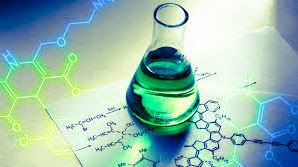What is chemistry?
 |
| What is chemistry?. |
Every existing material is made up of matter - even our own bodies. Chemistry is involved in everything we do, from growing and cooking to cleaning our homes and bodies and launching an area shuttle. Chemistry is one of the physical sciences that helps us describe and explain our world.
Five branches
There are five main branches of chemistry, each of which has many fields of study.Analytical chemistry:
Uses qualitative and quantitative observation to determine and measure the physical and chemical properties of substances. In a sense, all chemistry is analytical.Physical chemistry:
Combines chemistry with physics. Physical chemists study how matter and energy interact. Thermodynamics and quantum mechanics are two important areas of physical chemistry.Organic chemistry:
Specifically studies compounds that contain a carbon element. Carbon has many unique properties that allow it to make complex chemical bonds and really large molecules. Organic chemistry is known as the “Chemistry of Life,” because all the molecules that make up living tissue contain carbon.Inorganic chemistry:
Studies materials such as metals and gases that do not have carbon in their composition.Biochemistry:
Is the study of chemical processes that occur in living organisms.Modern principles
 |
| What is chemistry?. |
A chemistry lab stereotypically uses various forms of laboratory glassware. However, glassware is not central to chemistry, and much of experimental as well as applied / industrial chemistry is dispensed with.
Solutions of substances in vials with reagents, including ammonium hydroxide and nitric acid, illuminated in different colors
A chemical reaction is the conversion of certain substances into one or more different substances. The basis of such a chemical transformation is the rearrangement of electrons in chemical bonds between atoms. This can be symbolically depicted through a chemical equation that usually includes atoms as subjects. The number of atoms on the left and right in the equation for the chemical transformation is equal. When the number of atoms on both sides is not the same, the transformation is called a nuclear reaction or radioactive decay. The type of chemical reactions in which a substance can occur and the changes in energy that can accompany it are limited by certain basic rules known as chemical laws.
Energy and entropy considerations are invariably important in most chemical studies. Chemicals are classified in terms of their structure, phase, and also their chemical composition. They can be analyzed using chemical analysis tools, such as spectroscopy and chromatography. Chemical scientists are known as chemists. Most chemists specialize in one or more disciplines.
